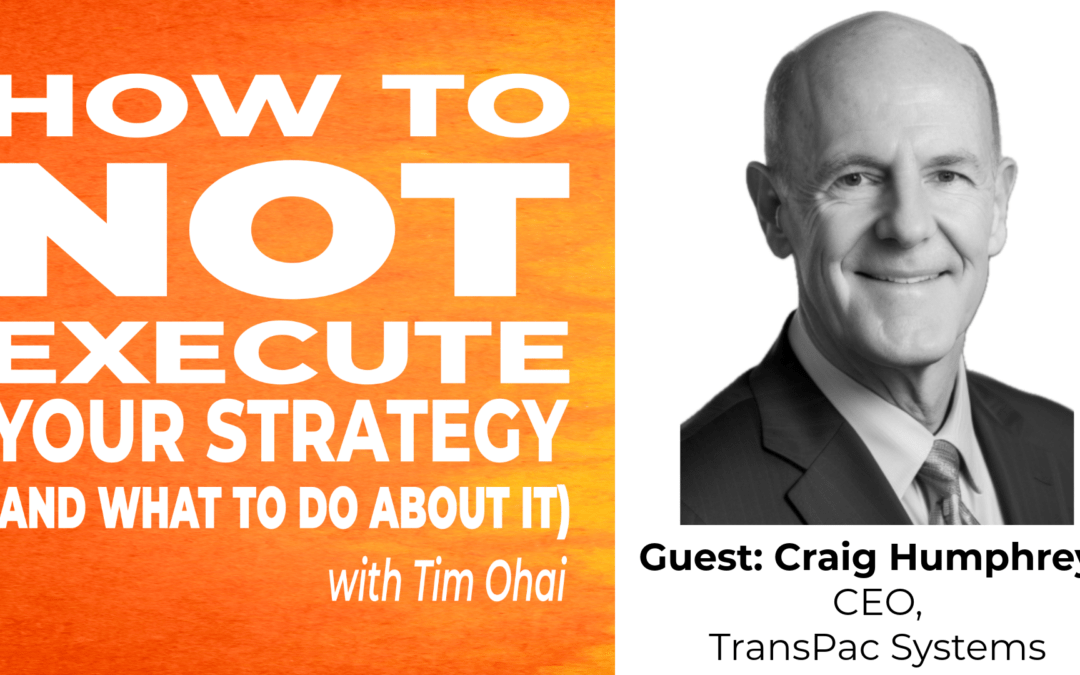How to NOT Execute Your Strategy (S2E4): Craig Humphreys
Craig Humphreys is literally the most interesting person that I know in the world. While he is currently the CEO of TransPac Systems and the co-founder and COO of Stygian HC, he is also:
- A former analyst for the CIA, earning a presidential citation for his efforts to end the Cold War
- Former member of the SETI team, searching for intelligent life in the universe
- One of the early pioneers of CGI in cinema
- Former CTO of HEB
- A legend in IT consulting, which has led him to support everything from data security at the Super Bowl to helping architect Facebook’s platform when it evolved from college site to social media phenomenon
- A black belt in three forms of martial arts… and a scratch golfer
In this episode, Craig shares the lessons he has learned about how over-shadowing the efforts of your team leads to stagnation – and the changes needed to reverse everything and generate massive breakthroughs.
- Find the audio version on your favorite platform or go directly via RSS.com
- Watch this episode on Youtube
Three key concepts:
- Once you make the desired outcome clear, back off and take the role of supporting your team to achieve that outcome. Get them what they need and – most importantly – adopt the mindset that you are the least important person. You are not dictating. You are serving.
- As a leader, you are responsible for creating an environment where people can influence you and change the way you think. It’s not about winning the debate. It’s about getting the best out of your people. Let them try their best and see what happens – even if it’s a different approach than you would use.
- 5/67 thinking is a profound way to tackle large, complex problems. It helps you generate quick, meaningful wins and turn them into genuine momentum. Don’t overconsume your resources on the wrong efforts. This is essential to strategic execution.
BONUS – Leader guide: Use the following questions for (a) self-reflection as a leader and/or (b) a great discussion with your team.
1) Listen to the full episode before this discussion.
2) What stood out to you most from that episode? Why?
3) If you were to reduce the interview into one single theme, what would it be. Share your answers.
4) Focus on the theme of getting the most out of your assets. Tim talks about using PTER as a way to remember your assets (people, Time, Energy, and Resources). Which assets did Craig do the best with? Which assets did Craig struggle to master? Why do you think this was so?
5) Using the PTER model to define how we empower our own efforts, what is most important to us now – People, Time, Energy, or Resources? Why?
6) Looking at our efforts now, what should we be doing to ensure that we are using our assets to generate significant momentum? How could we use 5/67 thinking to help us?
7) Option: Take time right now to define exactly what that looks like (the outcome(s), metrics, and requirements).
If you enjoyed this episode, please share it with at least one person. And leave me a review on whatever platform you engaged this podcast. Your feedback is invaluable to me.
Holomua. Onward and upward.
All the best ~ Tim
PS Like what you’re reading? Please share this content with a friend so they can join the community.


Recent Comments